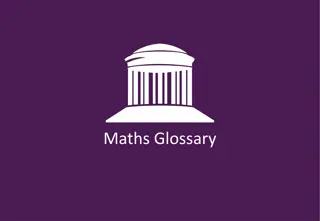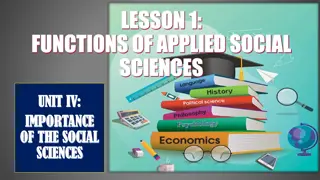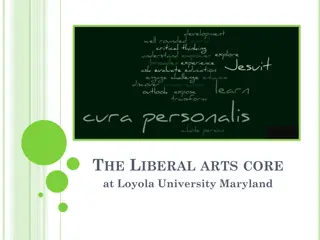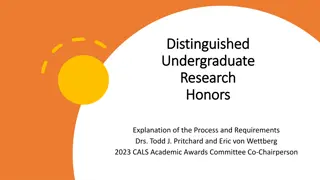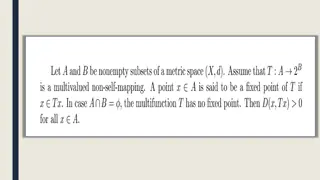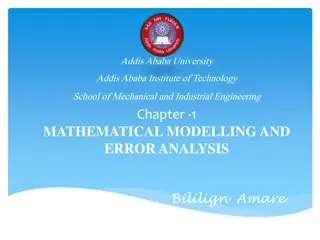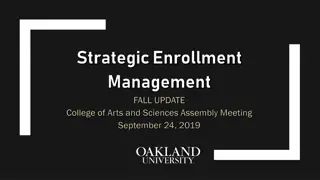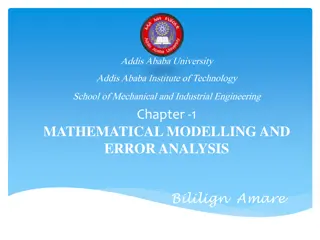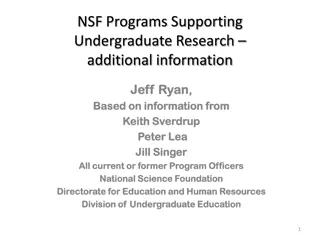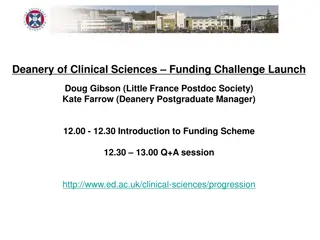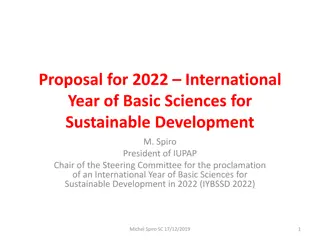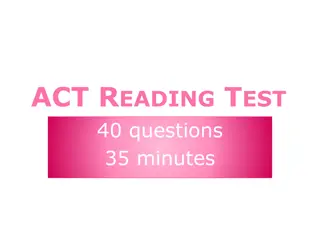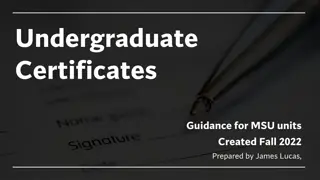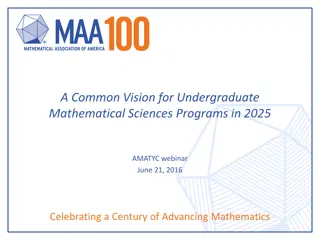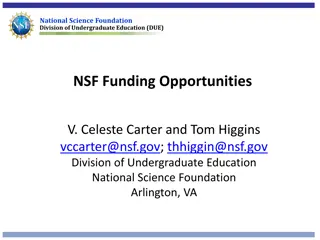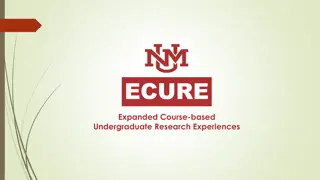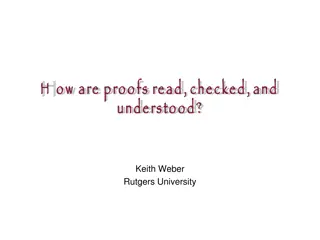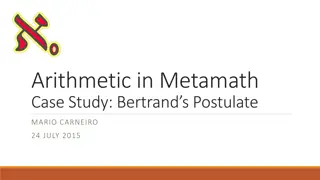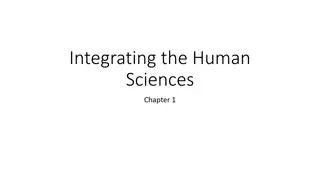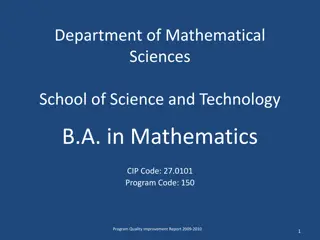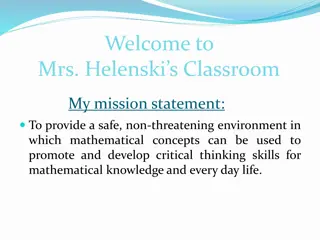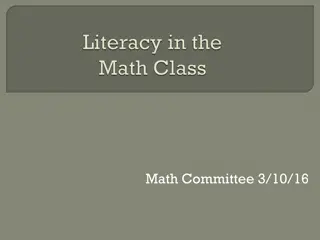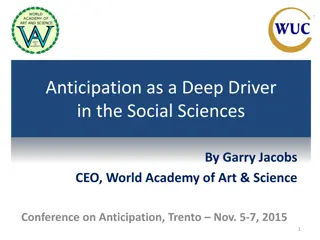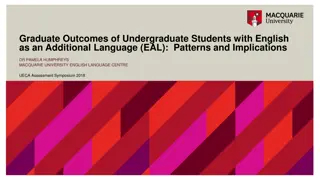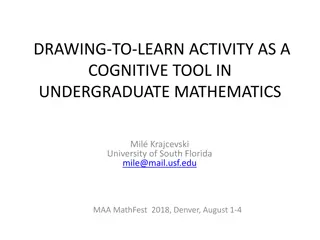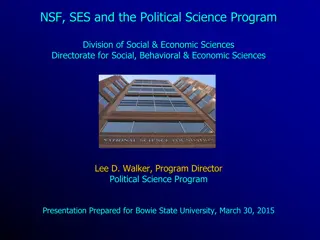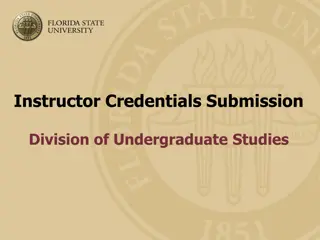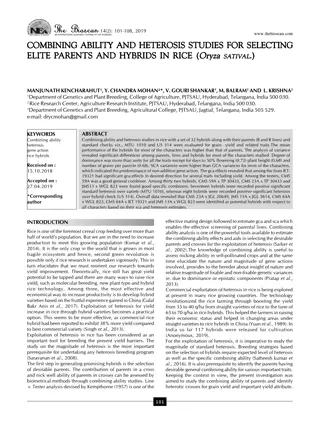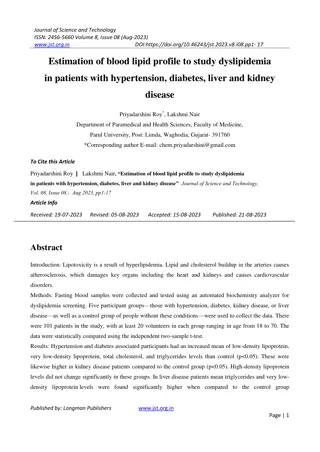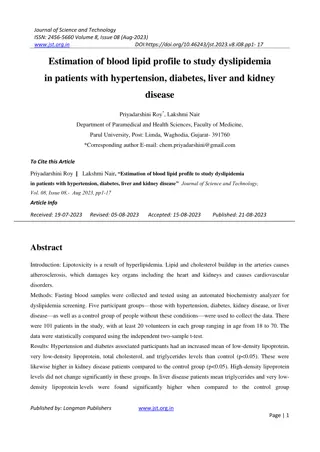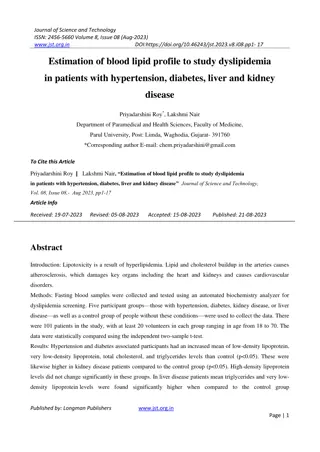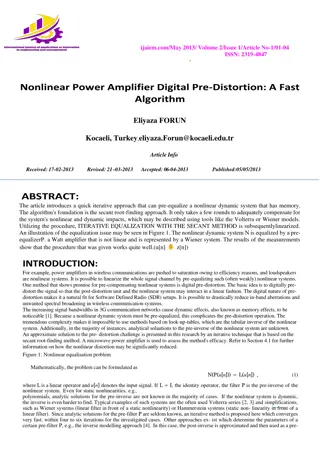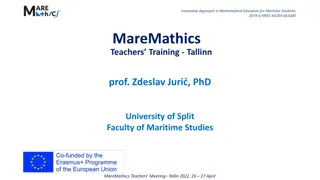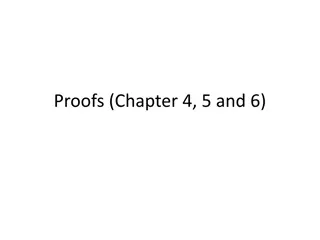Orientation Bachelor of Early Childhood Education – Part-Time (ECE-MAJ)
Singapore University of Social Sciences (SUSS) is Singapore's newest autonomous university, offering a range of undergraduate and postgraduate programs focused on social sciences, business, arts, behavioral sciences, science, technology, law, and lifelong learning. With a student population of over
1 views • 47 slides
Updating ERC Panel Structure for 2024 Calls: Rationale and Main Changes
The European Research Council will revise its panel structure for the 2024 calls to enhance coherence, focus on frontier research, and appreciate interdisciplinarity. The main principles reflect the overarching evaluation policy of the ERC, ensuring a forward-looking approach that evolves with the c
3 views • 12 slides
Mathematical Checkpoints and Equations Activities for Year 7 Students
Engage Year 7 students in a series of 16 checkpoint activities and 12 additional activities focused on expressions, equations, and mathematical concepts. Explore topics like checks and balances, shape balance, equations from bar models, number line concepts, and more to enhance mathematical understa
3 views • 42 slides
Effective Strategies for Teaching Mathematics: Concrete, Pictorial, Abstract Approach
Utilizing concrete manipulatives, pictorial representations, and abstract symbols is a crucial method for enhancing mathematical understanding. This approach guides students from hands-on exploration to visual representation and ultimately to solving problems with symbols. By engaging in this progre
1 views • 25 slides
Importance of Social Sciences in Modern Society
Social sciences play a crucial role in addressing societal issues and understanding human behavior within different contexts. Despite the focus on STEM fields, social sciences are essential in areas like social work, justice systems, and business. This educational content highlights the functions an
8 views • 17 slides
Loyola University Maryland Liberal Arts Core Overview
The Liberal Arts Core at Loyola University Maryland emphasizes a well-rounded education through courses in Humanities, Social Sciences, Mathematical Sciences, and Natural Sciences. Students take 15 core courses in liberal arts, including writing, history, literature, language, philosophy, theology,
2 views • 19 slides
Welcome Scholars!
University of Georgia offers a vibrant academic environment with 30,000 undergraduate students from 67 different countries. The Franklin College of Arts & Sciences provides a comprehensive liberal arts education with 80+ degree programs and opportunities for hands-on learning. Programs in Physical &
2 views • 21 slides
Distinguished Undergraduate Research Honors Process & Requirements
The process for Distinguished Undergraduate Research (DUR) Honors recognizes outstanding seniors in the College of Agriculture and Life Sciences at the University of Vermont. Applicants submit proposals, conduct original research, present findings, and seek approval from the CALS Academic Awards Com
0 views • 20 slides
Evolution of Mathematical Theories and Proof Systems
Development of mathematical theories such as model theory, proof theory, set theory, recursion theory, and computational complexity is discussed, starting from historical perspectives with Dedekind and Peano to Godel's theorems, recursion theory's golden age in the 1930s, and advancements in proof t
1 views • 29 slides
Life Sciences Degree Options and Curriculum at University of Glasgow
Explore the diverse range of Life Sciences degree choices available at the University of Glasgow, including Animal Biology, Biomolecular Sciences, Human Life Sciences, and Infection & Immunology. Learn about the flexible curriculum structure, career prospects, and research-based work placements offe
2 views • 20 slides
Mathematical Definitions and Theorems Illustrated
In this collection of images, various mathematical concepts are visually presented, including definitions, theorems, and proofs. The slides cover a range of topics in a structured manner, providing a concise overview of key mathematical principles. From foundational definitions to detailed proofs, t
0 views • 12 slides
Mathematical Modeling and Error Analysis in Engineering
Mathematical modeling plays a crucial role in solving engineering problems efficiently. Numerical methods are powerful tools essential for problem-solving and learning. This chapter explores the importance of studying numerical methods, the concept of mathematical modeling, and the evaluation proces
0 views • 10 slides
Strategic Enrollment Management Fall Update - College of Arts and Sciences Assembly Meeting
Dawn Aubry, the Associate Vice President of Enrollment Management, and Cindy Hermsen, the Director of Financial Aid, present an overview of the OU SEM planning process and discuss the progress made so far. Goals for the meeting include community engagement, questions, and feedback on undergraduate e
0 views • 26 slides
Understanding Mathematical Modeling and Error Analysis in Engineering
Mathematical modeling plays a crucial role in problem-solving in engineering by using numerical methods. This involves formulating problems for solutions through arithmetic operations. The study of numerical methods is essential as they are powerful problem-solving tools that enhance computer usage
5 views • 10 slides
NSF Programs Supporting Undergraduate Research Overview
Explore various NSF programs supporting undergraduate research and education, including opportunities such as Research in Undergraduate Institutions (RUI) and Research Opportunity Awards (ROA) aimed at leveling the playing field and fostering future generations of researchers. Learn how these initia
1 views • 19 slides
Deanery of Clinical Sciences Funding Challenge 2018 Launch Event
The Deanery of Clinical Sciences is offering a small grant opportunity for early career researchers within the clinical sciences field. The fund aims to support researchers' current studies and research projects with a maximum grant of £2,500. Applications are open to postgraduates and postdocs, an
3 views • 7 slides
Celebrating Basic Sciences in 2022 for Sustainable Development
The proposal suggests declaring 2022 as the International Year of Basic Sciences for Sustainable Development, aiming to highlight the crucial role of curiosity-driven basic sciences in societal, environmental, and economic progress. Recognizing the significant contributions of basic sciences to vari
5 views • 13 slides
Understanding the ACT Reading Test Content
The ACT Reading Test comprises 40 questions to be answered in 35 minutes, covering four categories: Prose Fiction, Humanities, Social Sciences, and Natural Sciences. Each category has a specific percentage of questions. The test evaluates your ability to comprehend various passages, including prose
1 views • 24 slides
Undergraduate Certificates: Guidance and Requirements for MSU Units
Undergraduate certificates (UGCs) at MSU provide a focused, structured set of experiences distinct from majors and minors, enhancing expertise in specific areas. The initiative aims to attract dynamic undergraduate students, increase diversity, eliminate opportunity gaps, recruit talented learners,
0 views • 18 slides
A Common Vision for Undergraduate Mathematical Sciences Programs in 2025
Challenges faced by mathematics and statistics programs in preparing scientifically literate citizens, including low success rates, disparities in degree awards for underrepresented minorities, and high failure rates under traditional lecture approaches. Two influential reports criticized the teachi
0 views • 38 slides
National Science Foundation Division of Undergraduate Education (DUE) Programs
The National Science Foundation (NSF) Division of Undergraduate Education (DUE) offers various funding opportunities and programs to support science, technology, engineering, and mathematics (STEM) education. The DUE aims to enhance undergraduate education, produce more STEM graduates, and advance r
0 views • 21 slides
ECURE: Course-based Undergraduate Research Experiences Framework
ECURE is an initiative funded by the National Science Foundation, aimed at enhancing undergraduate STEM education through Expanded Course-based Undergraduate Research Experiences. The framework includes essential elements of authentic research, emphasizing collaboration, iteration, and discovery. De
0 views • 17 slides
Understanding and Checking Mathematical Proofs
Reading and understanding mathematical proofs involves careful analysis of logic and reasoning. Mathematicians and students use various strategies to ensure correctness, such as examining assumptions, following step-by-step logic, and verifying conclusions. This process is crucial for grasping the v
1 views • 79 slides
Exploring Metamath: A Computer Language for Mathematical Proofs
Metamath is a computer language designed for representing mathematical proofs. With several verifiers and proof assistants, it aims to formalize modern mathematics using a simple foundation. The Metamath-100 project is focused on proving a list of 100 theorems, with significant progress made in prov
0 views • 17 slides
Understanding Human Sciences: Integrating Disciplines for Coherent Insight
This book explores the integration of human sciences, aiming to create a coherent understanding of the key phenomena studied across humanities and social sciences. It advocates for a unified approach that embraces the complexity of relationships and causal links within this system, offering construc
0 views • 6 slides
Mathematics Program Quality Improvement Report 2009-2010 at Department of Mathematical Sciences
This report outlines the student-learning outcomes of the Mathematics program at the Department of Mathematical Sciences. It covers areas such as knowledge of mathematical content, reasoning and proof, mathematical representation and problem-solving, mathematical communication, and knowledge of tech
0 views • 29 slides
Enhancing Critical Thinking Skills Through Mathematical Concepts in Mrs. Helenski's Classroom
Mrs. Helenski's classroom provides a safe environment where mathematical concepts are utilized to develop critical thinking skills for both mathematical knowledge and everyday life. With a focus on promoting metacognition in Geometry Honors, students are challenged to apply, prove, justify, and expl
0 views • 20 slides
Understanding Mathematical Literacy and Its Importance in Education
Recognizing the language of mathematics, understanding symbols, and being able to explain solutions are key components of mathematical literacy. It goes beyond merely answering questions correctly to encompass explaining reasoning and exploring concepts actively. The Standards for Mathematical Pract
0 views • 36 slides
Exploring The Relationship Between Natural and Social Sciences Through Anticipation
Explore the distinct characteristics that define the natural and social sciences, delving into how anticipation serves as a deep driver in the social sciences. Uncover the fundamental principles of human behavior, the role of consciousness and subjective reality in social science, and the influence
0 views • 11 slides
Graduate Outcomes of Undergraduate Students with English as an Additional Language (EAL): Patterns and Implications
This research study conducted by Dr. Pamela Humphreys at Macquarie University's English Language Centre focuses on the graduate outcomes of undergraduate students with English as an additional language (EAL). The study explores patterns and implications of these outcomes, analyzing factors such as E
0 views • 43 slides
Enhancing Mathematical Understanding through Drawing Activities
Exploring the cognitive benefits of drawing-to-learn activities in undergraduate mathematics, this content delves into visual proofs, historical mathematical concepts, and the importance of communication in mathematics. Visual thinking, creative representations, and the power of visualization are em
0 views • 36 slides
Understanding the National Science Foundation's Social and Economic Sciences Programs
The National Science Foundation (NSF) supports basic research through its discipline-based structure, incorporating mechanisms like Research Experiences for Undergraduates and Minority Postdoctoral Research Fellowships. The Directorate for Social, Behavioral, and Economic Sciences houses programs su
0 views • 28 slides
Credentialing Requirements for Faculty and Teaching Assistants in Undergraduate Studies
Credentialing for instructors in the Division of Undergraduate Studies ensures adequate preparation to teach assigned courses, aligning with institutional accreditation standards. Policies and procedures are outlined for faculty and staff members, including TAs, emphasizing the need for specific qua
0 views • 17 slides
journal of life sciences research and reviews journal of life sciences research
The Journal of Life Sciences Research and Reviews is an academic, peer-reviewed journal dedicated to publishing high-quality research articles, reviews, and critical analyses in the field of life sciences. It covers a broad range of topics, with an e
0 views • 8 slides
journal of life and bio-sciences research
The Journal of Life and Bio-Sciences Research is an academic and scientific journal that focuses on publishing high-quality research articles, reviews, and studies in the fields of life sciences and biological sciences. It serves as a platform for re
0 views • 17 slides
journal of life and bio-sciences research
The Journal of Life and Bio-Sciences Research is an academic and scientific journal that focuses on publishing high-quality research articles, reviews, and studies in the fields of life sciences and biological sciences. It serves as a platform for re
0 views • 17 slides
journal of life and bio-sciences research
The Journal of Life and Bio-Sciences Research is an academic and scientific journal that focuses on publishing high-quality research articles, reviews, and studies in the fields of life sciences and biological sciences. It serves as a platform for re
0 views • 17 slides
journal of life and bio-sciences research
The Journal of Life and Bio-Sciences Research is an academic and scientific journal that focuses on publishing high-quality research articles, reviews, and studies in the fields of life sciences and biological sciences. It serves as a platform for re
0 views • 4 slides
Innovative Approach in Mathematical Education for Maritime Students
Explore the innovative approach in mathematical education for maritime students as presented during the MareMathics Teachers Training and Meeting in Tallinn. The sessions covered topics such as mathematical applications in thermodynamics, including partial derivatives, derivations, and integrals wit
0 views • 11 slides
Understanding Mathematical Proofs and Concepts
Explore the world of mathematical proofs through chapters 4, 5, and 6. Delve into terminology, theorems, definitions, divisors, and accepted axioms used in mathematical reasoning. Discover the logic behind proofs and various methods employed in establishing the truth of mathematical statements.
1 views • 101 slides



